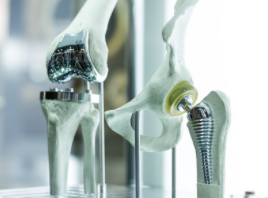When it comes to hip replacement, there are a few key factors to consider. Many people choose to have their hip replaced following a traumatic event that has caused them significant pain. This can be an accident, injury, or disease. In many cases, though, simply being overweight is enough to bring on hip replacement. Here are some of the other reasons to visit a hip replacement surgeon as quickly as possible.
 First, the reasons to visit #1 Hip Replacement Surgeons immediately are many. One of the most common surgical methods in hip replacement is the anterior method (also known as the “sub-glandular approach” or the “sub-articular approach”), which involves making small incisions behind the joint, or suturing the skin together and stapling the ends. Because this method does not always result in complete healing, there may be pain involved for several weeks, as the joints are protected from swelling by the stapling. Patients who visit a doctor soon after an incident involving hip pain tend to heal more quickly than those who take months before consulting a specialist. (Prolonged pain can lead to a ruptured cyst or the development of bone spurs.)
First, the reasons to visit #1 Hip Replacement Surgeons immediately are many. One of the most common surgical methods in hip replacement is the anterior method (also known as the “sub-glandular approach” or the “sub-articular approach”), which involves making small incisions behind the joint, or suturing the skin together and stapling the ends. Because this method does not always result in complete healing, there may be pain involved for several weeks, as the joints are protected from swelling by the stapling. Patients who visit a doctor soon after an incident involving hip pain tend to heal more quickly than those who take months before consulting a specialist. (Prolonged pain can lead to a ruptured cyst or the development of bone spurs.)
Second, the reasons to visit a hip replacement surgeon immediately following a traumatic incident include fast healing. The process of total hip replacement surgery involves a lengthy period of physical therapy and rehabilitation. For some patients, that healing period can be a painful experience, causing further pain once the surgery is finished. Besides, once the bones have been put back into position, and the cartilage is restored, many patients require different pain medications, which can add to the discomfort. By waiting for the therapy to complete, many people find that the pain gets worse.
Third, patients may need more extended treatment at the hospital because the recovery takes so long. When a patient has hip replacement surgery, recovery can take six weeks to a year, depending on the severity of the injury. For some patients, the wound will never close properly, and the bones will remain embedded in the socket, making it very difficult to walk. Other patients can have the wound go unnoticed until much later when they can no longer walk without feeling pain. For these cases, doctors will typically recommend additional surgery to correct the issue.
Fourth, #1 Hip Replacement Surgeons can perform minimally invasive total hip replacement surgery. These surgeries involve making smaller incisions and using larger femoral valves. Because these surgeries involve making smaller incisions, recovery times for these surgeries are relatively shorter than those of standard hip replacement surgeries. Also, minimally invasive surgeries generally result in faster healing times.
Finally, patients may experience pain after hip replacement surgery. This can be incredibly uncomfortable in the mornings but may reduce over time. Patients can also have problems moving afterwards, but many people find that their pain improves with exercise and rehabilitation. In rare cases, patients may feel stiff and limber for several months, but this usually occurs only in early days following surgery and may be temporary.
Follow-up care after hip replacement is typically outpatient. Patients can return to work after a day or two of rest, while others will have minimal restriction of activity. Swelling and bruising are often expected to go away within a few weeks, and doctors will recommend exercise and medication to help patients keep their joints moving. Swelling and bruising will decrease soon after surgery, and patients can resume normal activities at ease.
If you have undergone hip replacement surgery, make sure you visit your doctor regularly to monitor your progress after surgery and to make sure you are doing well. You’ll also want to visit your surgeon if you experience any complications from hip replacement surgery, as these could lead to further treatment that costs more money and time. These visits will help you understand what to expect after your operation and what to do if you experience an adverse reaction from your treatment. You can learn more about your after-care from your surgeon, and you can also get advice from other hip replacement patients.